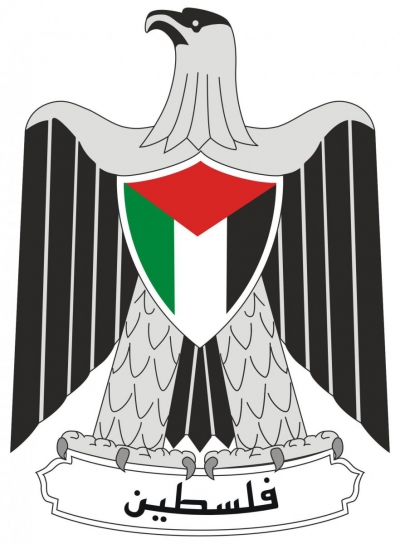Mohammed Abdel Rahman Abdel Raouf al-Qudwa al-Husseini (4 / 24 August 1929 11 November 2004), popularly known as Yasser Arafat ( ARR--fat, also US: AR--FAHT; Arabic: ; Arabic: , romanized: Ysir Araft) or by his kunya Abu Ammar (Arabic: , romanized: Ab Ammr), was a Palestinian political leader. He was Chairman of the Palestine Liberation Organization (PLO) from 1969 to 2004 and President of the Palestinian National Authority (PNA) from 1994 to 2004. Ideologically an Arab nationalist and a socialist, he was a founding member of the Fatah political party, which he led from 1959 until 2004.
Arafat was born to Palestinian parents in Cairo, Egypt, where he spent most of his youth and studied at the University of King Fuad I. While a student, he embraced Arab nationalist and anti-Zionist ideas. Opposed to the 1948 creation of the State of Israel, he fought alongside the Muslim Brotherhood during the 1948 ArabIsraeli War. Following the defeat of Arab forces, Arafat returned to Cairo and served as president of the General Union of Palestinian Students from 1952 to 1956.
In the latter part of the 1950s Arafat co-founded Fatah, a paramilitary organization seeking the removal of Israel and its replacement with a Palestinian state. Fatah operated within several Arab countries, from where it launched attacks on Israeli targets. In the latter part of the 1960s Arafat's profile grew; in 1967 he joined the Palestinian Liberation Organization (PLO) and in 1969 was elected chair of the Palestinian National Council (PNC). Fatah's growing presence in Jordan resulted in military clashes with King Hussein's Jordanian government and in the early 1970s it relocated to Lebanon. There, Fatah assisted the Lebanese National Movement during the Lebanese Civil War and continued its attacks on Israel, resulting in it becoming a major target of Israel's 1978 and 1982 invasions.
From 1983 to 1993, Arafat based himself in Tunisia, and began to shift his approach from open conflict with the Israelis to negotiation. In 1988, he acknowledged Israel's right to exist and sought a two-state solution to the IsraeliPalestinian conflict. In 1994 he returned to Palestine, settling in Gaza City and promoting self-governance for the Palestinian territories. He engaged in a series of negotiations with the Israeli government to end the conflict between it and the PLO. These included the Madrid Conference of 1991, the 1993 Oslo Accords and the 2000 Camp David Summit. The success of the negotiations in Oslo led to Arafat being awarded the Nobel Peace Prize, alongside Israeli Prime Ministers Yitzhak Rabin and Shimon Peres, in 1994. At the time, Fatah's support among the Palestinians declined with the growth of Hamas and other militant rivals. In late 2004, after effectively being confined within his Ramallah compound for over two years by the Israeli army, Arafat fell into a coma and died. While the cause of Arafat's death has remained the subject of speculation, investigations by Russian and French teams determined no foul play was involved.Arafat remains a controversial figure. Palestinians generally view him as a martyr who symbolized the national aspirations of his people. Israelis regarded him as a terrorist. Palestinian rivals, including Islamists and several PLO leftists, frequently denounced him as corrupt or too submissive in his concessions to the Israeli government.
The Palestine Liberation Organization (PLO; Arabic: منظمة التحرير الفلسطينية, Munaẓẓamat at-Taḥrīr al-Filasṭīniyyah) is a Palestinian-nationalist political and militant organization founded in 1964 with the purpose of establishing Arab unity and liberating the Palestinian Territories, currently under a military occupation by the State of Israel. It is headquartered in the city of Al-Bireh in the West Bank, and is recognized as the sole legitimate representative of the Palestinian people by over 100 countries that it holds diplomatic relations with. As the official recognized government of the de jure State of Palestine, it has enjoyed observer status at the United Nations (UN) since 1974. Due to its militant activities, including acts of violence primarily aimed at Israeli civilians, the PLO was designated as a terrorist organization by the United States in 1987, although a later presidential waiver has permitted American contact with the organization since 1988. In 1993, the PLO recognized Israel's right to exist in peace, accepted Resolution 242 of the United Nations Security Council, and rejected "violence and terrorism". In response, Israel officially recognized the PLO as a legitimate authority representing the Palestinian people. However, despite its acknowledgements in 1993, the PLO continued to employ tactics of violence in the following years, particularly during the Second Intifada of 2000–2005. On 29 October 2018, the Palestinian Central Council suspended the Palestinian recognition of Israel, and subsequently halted all forms of security and economic cooperation with it.

2004Nov, 11
The Palestine Liberation Organization confirms the death of Yasser Arafat from unidentified causes. Mahmoud Abbas is elected chairman of the PLO minutes later.
Choose Another Date
Events on 2004
- 1Jan
Pervez Musharraf
In a vote of confidence, General Pervez Musharraf wins 658 out of 1,170 votes in the Electoral College of Pakistan, and according to Article 41(8) of the Constitution of Pakistan, is "deemed to be elected" to the office of President until October 2007. - 2Feb
Roger Federer
Swiss tennis player Roger Federer becomes the No. 1 ranked men's singles player, a position he will hold for a record 237 weeks. - 1May
European Union
Cyprus, Czech Republic, Estonia, Hungary, Latvia, Lithuania, Malta, Poland, Slovakia, and Slovenia join the European Union, celebrated at the residence of the Irish President in Dublin. - 26May
Oklahoma City bombing
United States Army veteran Terry Nichols is found guilty of 161 state murder charges for helping carry out the Oklahoma City bombing. - 3Aug
September 11 attacks
The pedestal of the Statue of Liberty reopens after being closed since the September 11 attacks.

 English
English  español
español  français
français  português
português  русский
русский  العربية
العربية  简体中文
简体中文 